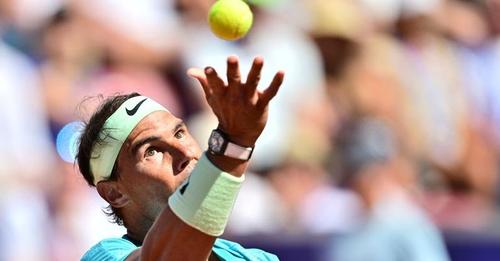
Rafael Nadal, one of the greatest tennis players of all time, has built a legacy that is unparalleled in the sport.

However, recent concerns have been raised by a close ally regarding the impact of his demanding schedule on his enduring legacy.
Nadal’s career has been marked by extraordinary achievements, including numerous Grand Slam titles and a dominant presence on clay courts. His relentless pursuit of excellence and his unwavering commitment to the sport have earned him a place among the legends of tennis. Yet, as he continues to compete at the highest level, questions about the long-term effects of his rigorous schedule have come to the forefront.
A close associate of Nadal, who has been intimately involved in his career, has voiced worries about the toll that the intense competition and continuous travel may be taking on the tennis star. The ally highlighted that while Nadal’s dedication and passion are admirable, the physical and mental demands of the sport could potentially affect his ability to maintain his peak performance and health in the years to come.
Nadal’s schedule is undeniably taxing. The nature of professional tennis requires constant movement across continents, participation in numerous tournaments, and the need to stay in peak physical condition throughout the year. This relentless pace can lead to injuries and burnout, which are concerns not only for Nadal but for any athlete in his position.
The concerns raised by Nadal’s ally are not without merit. Throughout his career, Nadal has faced several injuries that have temporarily sidelined him from competition. Despite his remarkable comebacks, these injuries serve as a reminder of the physical strain inherent in the sport. The ally’s comments bring to light the delicate balance Nadal must maintain between pushing the boundaries of his performance and safeguarding his long-term well-being.
Moreover, the mental aspect of maintaining such a high level of performance cannot be overlooked. The pressure to continuously succeed, the scrutiny from media and fans, and the personal expectations Nadal places on himself all contribute to a challenging mental landscape. Managing these pressures is crucial for any athlete aiming for longevity in their career.
Nadal’s resilience and ability to bounce back from setbacks have been key components of his success. However, the ally’s concerns suggest that there may come a point where the cumulative impact of his grueling schedule could influence his decision to continue competing at the highest level. Balancing his desire to add to his impressive list of accomplishments with the need to preserve his health and legacy is a challenge that Nadal, like many great athletes, must navigate.
As Nadal’s career progresses, it will be essential for him and his team to carefully consider his schedule and make decisions that prioritize his well-being. This might mean strategically selecting tournaments, allowing for adequate rest and recovery periods, and being vigilant about any signs of physical or mental strain.
In conclusion, Rafael Nadal’s legacy is already cemented in the annals of tennis history. However, the concerns raised by a close ally highlight the importance of balancing his ambitious pursuits with the need to safeguard his health and longevity in the sport. Nadal’s story is one of extraordinary achievement, resilience, and passion, and ensuring that he can continue to inspire future generations will require thoughtful management of his demanding schedule. As fans and admirers of his incredible career, we can only hope that Nadal’s journey forward is marked by both continued success and sustained well-being.
Leave a Reply